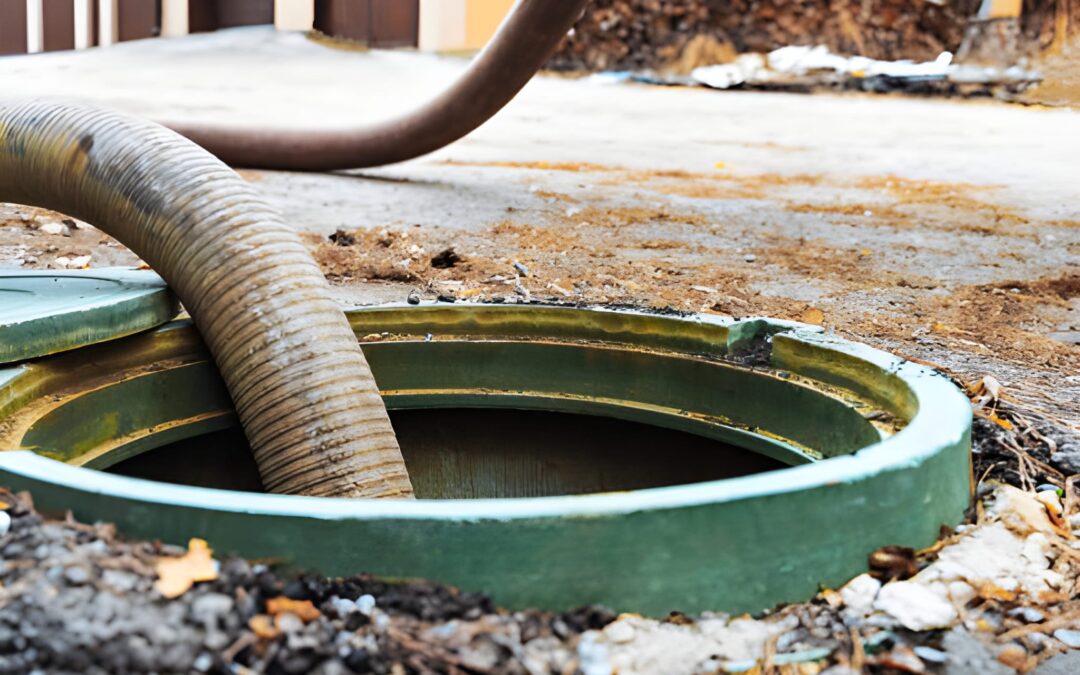Dealing with a septic system failure can be one of the most unexpected and stressful issues a homeowner faces, especially in Ottawa where the weather can sometimes play a wild card. Septic systems are usually out of sight, out of mind—until something goes wrong. Understanding the importance of managing these systems diligently is crucial for maintaining a healthy and safe home environment. It’s always better to be informed and ready for any hiccups that might come your way.
Many people worry about septic system failures because they can lead to a host of problems like unpleasant smells, slow drains, and even water backups. These issues might seem small at first but can quickly escalate into a larger mess if not addressed. It’s not uncommon for homeowners to feel overwhelmed by the situation, unsure of where to start or what steps to take. Having a solid plan for dealing with septic system problems can help keep your home comfortable and safe.
Signs of a Failing Septic System
Spotting the signs of a failing septic system early can save you a lot of hassle down the line. By paying attention to certain warning signals, you can nip problems in the bud before they become overwhelming. Here are common indicators that your septic system may be struggling:
– Unpleasant Odors: If you notice a foul smell inside or around your home, it could be a sign that your septic system is not working properly.
– Slow Drains: A common red flag is if your sinks, toilets, or showers are draining slower than usual. This can indicate a blockage or other system issues.
– Standing Water: Puddles of water in your yard, particularly near your septic tank, may suggest it’s not draining properly.
– Lush Grass Over Drain Field: If the grass over your septic drain field is much greener and healthier than the surrounding area, your system might be leaking.
Identifying these signs specific to Ottawa homes can be particularly important in fall transitioning to winter. Cold weather conditions can exacerbate these problems, so it’s good to act quickly when you spot them.
Immediate Steps to Take When Your Septic System Fails
Acting swiftly when your septic system fails can help minimize damage and maintain safety within your home. Here’s what you can do immediately:
- Limit Water Usage: Try to reduce your water usage until you’ve identified the problem. This means avoiding baths, extended showers, or running water-using appliances.
- Note the Issue: Take notes on everything you’re observing. This includes noting when you noticed the problem, any sounds or smells, and other unusual signs.
- Check for Obvious Problems: Look around the septic system area for any visible issues, like exposed pipes or unusually soggy ground.
- Contact a Professional: Never attempt to fix the system yourself. Call in experts who can properly assess and repair your system.
Writing down your observations will be very helpful when a professional comes to evaluate the problem. This information gives them a better idea of what’s happening and helps ensure a more efficient repair process. Taking these steps swiftly can not only save you time and stress but also money in the long run by avoiding more complex, expensive problems.
How to Prevent Future Septic System Failures
Prevention is always preferable when it comes to keeping your septic system in good shape. Regular maintenance can save you a bunch of headaches and unexpected costs down the road. Here are some practical tips to ensure your septic system remains in tip-top condition:
- Routine Inspections: Schedule regular inspections with a professional every couple of years to catch any potential issues early.
- Mind Water Usage: Be aware of how much water you’re using. Too much can overload your system. Spread out laundry over multiple days and consider water-efficient fixtures.
- Proper Waste Disposal: Never flush items that the system can’t handle, such as wipes, diapers, or grease. Stick to toilet paper and waste to avoid clogs.
- Take Care of the Drain Field: Keep heavy vehicles and structures away from this area to prevent damage. Plant only grass near your drain field to allow water to dissipate effectively.
In Ottawa, seasonal changes can be a factor. As temperatures drop, freezing can pose a risk to surface pipes and components. Making sure your system is insulated and checking lines for vulnerabilities can prevent problems as winter sets in.
When to Call for Professional Septic Systems Repair
Sometimes, despite best efforts, professional help becomes necessary. Complex issues can arise that require the expertise of those trained to handle these unique systems.
– Persistent Problems: If you’ve repeatedly noticed issues like backups or slow drainage, it’s time to get a pro involved.
– Unexplained Odours or Patches: Lingering smells or mysteriously wet or green patches in your yard can signal serious problems.
– No Improvement with Basic Adjustments: If making minor troubleshooting adjustments is unsuccessful in improving the situation, it’s wise to have an expert assess the system.
When in doubt, always err on the side of caution and bring in a pro to avoid making matters worse.
Maintaining a Functional Septic System Year-Round
Ensuring your septic system functions smoothly throughout the year doesn’t require magic. Staying informed and proactive makes a significant difference. By embracing regular maintenance and recognizing the value of professional insight, potential disasters can be averted.
Prioritize these practices as part of your routine home care. Doing so will not only enhance the longevity of your system but also provide peace of mind. Remember to adapt your approach with the seasonal changes Ottawa experiences, taking that extra step to protect your home environment.
By staying proactive and addressing concerns promptly, you can maintain a functional septic system in your Ottawa home. If issues persist or you need help, count on the expertise of Pipes Plumbing. Explore our services and learn more about how we can assist with your septic systems repair needs to ensure your system runs smoothly year-round.

